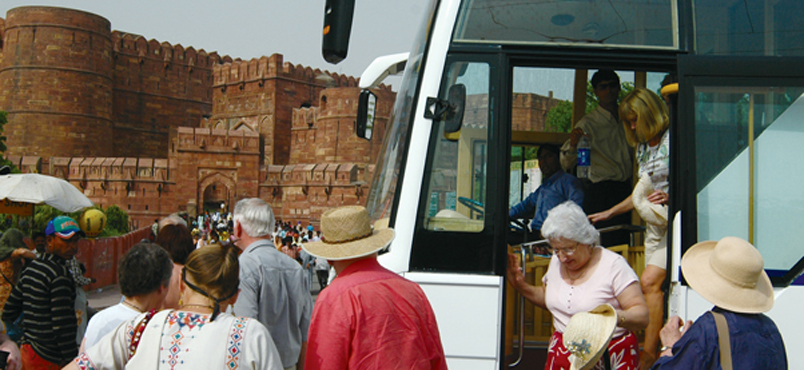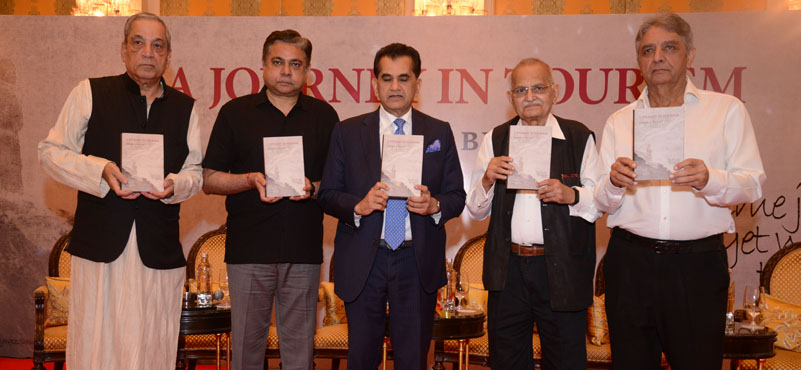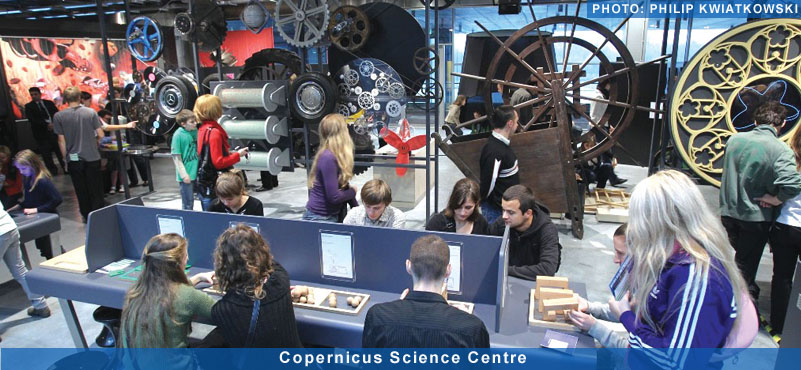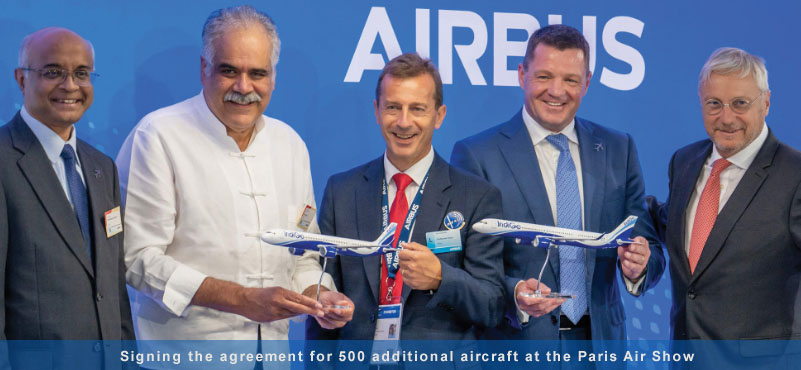The message that India was a safe nation for women travellers needed to be amplified in the global community through concerted outreach programs, noted senior stakeholders. Raj Rana, CEO, Carlson Rezidor – South Asia and Rajiv Kaul, President, The Leela Palaces, Hotels and Resorts shared their perspectives on tackling the perception conundrum.
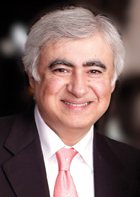 How much does this report (Thompson Reuters survey on women’s safety) affect perception?
How much does this report (Thompson Reuters survey on women’s safety) affect perception?
Rajiv Kaul: In the long term, I do not expect any impact, but in the short term, we shall have to undertake damage control measures to mitigate the perception of India being an unsafe destination for women.
Raj Rana: A report of such alarming observations is certainly a rude shock to the country which is working hard to provide equality to its women and uplift their overall status in the society. India has long grappled with the issue of crimes against women despite the introduction of stricter laws in the country. However, it is hard to believe that India should be top of the charts for being dangerous for women. It does not seem correct given the long history and legacy of women leaders, fighters and pioneers that the country has produced. It wouldn’t have been possible without an equal, safe and secure environment.
 Having said that, India is one of the most loved travel destinations across the world due to its rich art forms, tradition and cultural heritage. To ensure the safety of locals and tourists visiting the country, the Ministry of Tourism and State governments have taken up several initiatives. Our laws need to be enforced in a much more stringent and adequate manner to tackle the issue of women safety and ensure that the country’s tourism-related image dimensions are not tarnished.
Having said that, India is one of the most loved travel destinations across the world due to its rich art forms, tradition and cultural heritage. To ensure the safety of locals and tourists visiting the country, the Ministry of Tourism and State governments have taken up several initiatives. Our laws need to be enforced in a much more stringent and adequate manner to tackle the issue of women safety and ensure that the country’s tourism-related image dimensions are not tarnished.
How much would it impact numbers? What should be the industry response assuming we should not be sitting quiet?
Rajiv Kaul: Safety is a paramount requirement and a matter of universal concern, so it may potentially serve as a deterrent to foreign tourists from visiting India – especially single women travellers.
We need to counter the negative publicity with a two-pronged strategy. First, we need a public awareness drive that encapsulates the positive experiences of women travellers to present a fair and balanced picture. Second, is to have an outreach program drive that highlights the strides made by the Indian government in addressing issues of women’s safety, along with important tips on how to stay safe when travelling through any foreign country, including India. This shall assist in dispelling misconceptions and not dilute the promise of an ‘Incredible India’ experience.
Raj Rana: India is known for its art, cultural, pilgrimage as well as upcoming forms of tourism such as adventure and medical tourism. The richness and variety of our cuisine from one end of the country to another attracts tourists to indulge in local delicacies. Tourists love to delve into diverse regions, communities and the dynamic offerings of each state that makes the thrill of discovering a place even more intense.
Naturally, a perception study that paints an unfavorable picture from women’s safety and security point of view will hurt the tourism potential of the country and fuel unfounded fears in the minds of travelers. Especially so for women single and group travelers who would refrain from visiting the country.
We as an industry need to join hands to dispel the skepticism and work with the government to allay the fears around women safety and security in the country. It is also our collective responsibility to ensure strict safety and security provisions to place India as a safe tourism destination on the world map.
How can we assure the world we are a safe country and truly respect women?
Rajiv Kaul: Quintessentially, India is a country where women are naturally respected and where more Goddesses are worshipped than elsewhere in the world. We need to assure our guests both through our words and our actions. Safety, after all, is just an intangible feeling. While our hotels are absolutely safe, additional measures need to be taken so that foreign lady travellers feel equally safe in public – when bazaar shopping, commuting by a taxi or public transport, or just leisurely street to explore the destination. These are key touch points where they need to be and also feel safe.
Furthermore, in addition to an international PR campaign, a broad public awareness domestic campaign is also needed to sensitize our citizens – on safety and wellbeing behavioural protocol when interacting with overseas guests.
Raj Rana: The Constitution of India protects women’s rights to equality, freedom of voice, movement and liberty. Safety is at the forefront for the government where laws have been enforced to guard women and tackle violence.
To create a safe and open environment, the government has set up a 24×7 toll-free multilingual tourism info-helpline, deployed tourist police across states, issued guidelines on safety and security of tourists for states and Union Territories. There are various tourism institutions that are crafting strategies for the development of safe and honorable tourism in India. To reinforce the spirit of ‘Atithidevo Bhava’, awareness campaigns have been launched for sensitising key stakeholders in the industry and the public. As an added layer of security risk reduction, hotels and lodges should have provisions like assistance hotline, licensed tour guides and registered chauffeurs for ground transportation.
The country has everything that any travel enthusiast seeks for – diverse topography and cuisine, splendid architecture, vibrant culture and rich art. We as an industry should gift experiences and ensure safety of women where they can venture out anytime to any territory.
Our Take
It is most regrettable, indeed, and how can anyone escape the shame that goes with the spate of rapes that get reported. Some of them, so gruesome in their accounts that one cannot help concluding these are deranged minds, sick to their core. Even then, we do see and believe that life goes on in a normal and safe mode for our people, despite these reported cases. We are aware that these happen, but we are also sure that India is a safe country, nevertheless and regardless. So, what can we do as a nation, as the tourism industry, and as responsible citizens?
Firstly, we should be careful with our media reports. Report for sure, but do we need to go into such lurid details. Perhaps, the media fraternity needs to be sensitized. The tourism industry, key trade associations could take the lead and explore convening workshops for mainstream media corporations, sensitizing them about the perils of such reporting on the lives and livelihood of millions depending on tourism for their sustenance. The process must be led by private stakeholders and not left to the government. Not that the government does not have a role in the process. In fact, there is a reaction from the ministry, presented on the following page. Such responses, however, should not be a one-off and there should be a larger mechanism in place to deal with such issues, as and when they happen, on a standing basis, not on an ad-hoc one.
Secondly, do we have to ask the question that are we safe as a country? It is an irrelevant question. Surely, we are. Our ethos of ‘Atithi Devo Bhavah’ is even more intact. Raising the question of safety is picked up around the world, without getting adequately filtered and dents all the hard work done by stakeholders, government and private.
There are numerous cases where the incident is politicised for political gains. Making politics out of them is itself a cowardly act, that has every possibility to boomerang.
Traveller advisories could be considered through hotels and travel trade, the front arm of the industry that the average tourist meets. Sensitize the tourists to follow some important directions: to stay away from deserted streets, or unlit areas, not to approach or get into dialogue with undesirable elements like touts dealing in foreign exchange, and cheap accommodation or the like. Best perhaps not to venture alone, unescorted, after dark. Such advisories are commonplace in many countries and cities, some of them which get 30 million tourists in a year. Such advisories are not detrimental to tourism, or to a country’s image.
To the credit of local city bodies, across the country, several initiatives including introducing tourist police force and installing CCTVs have been taken in the past few years and many new ones are being continuously rolled out. What is needed is collective efforts from all stakeholders to counter such bad publicity.

